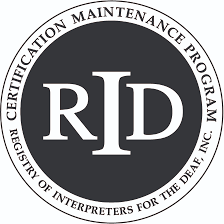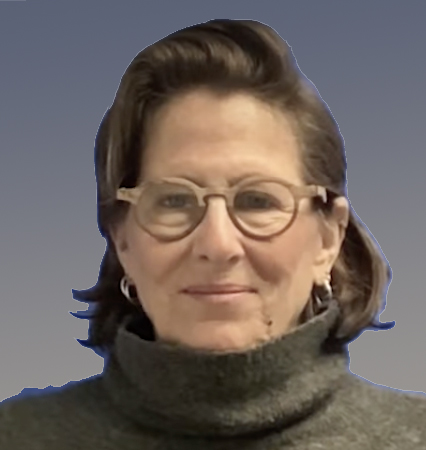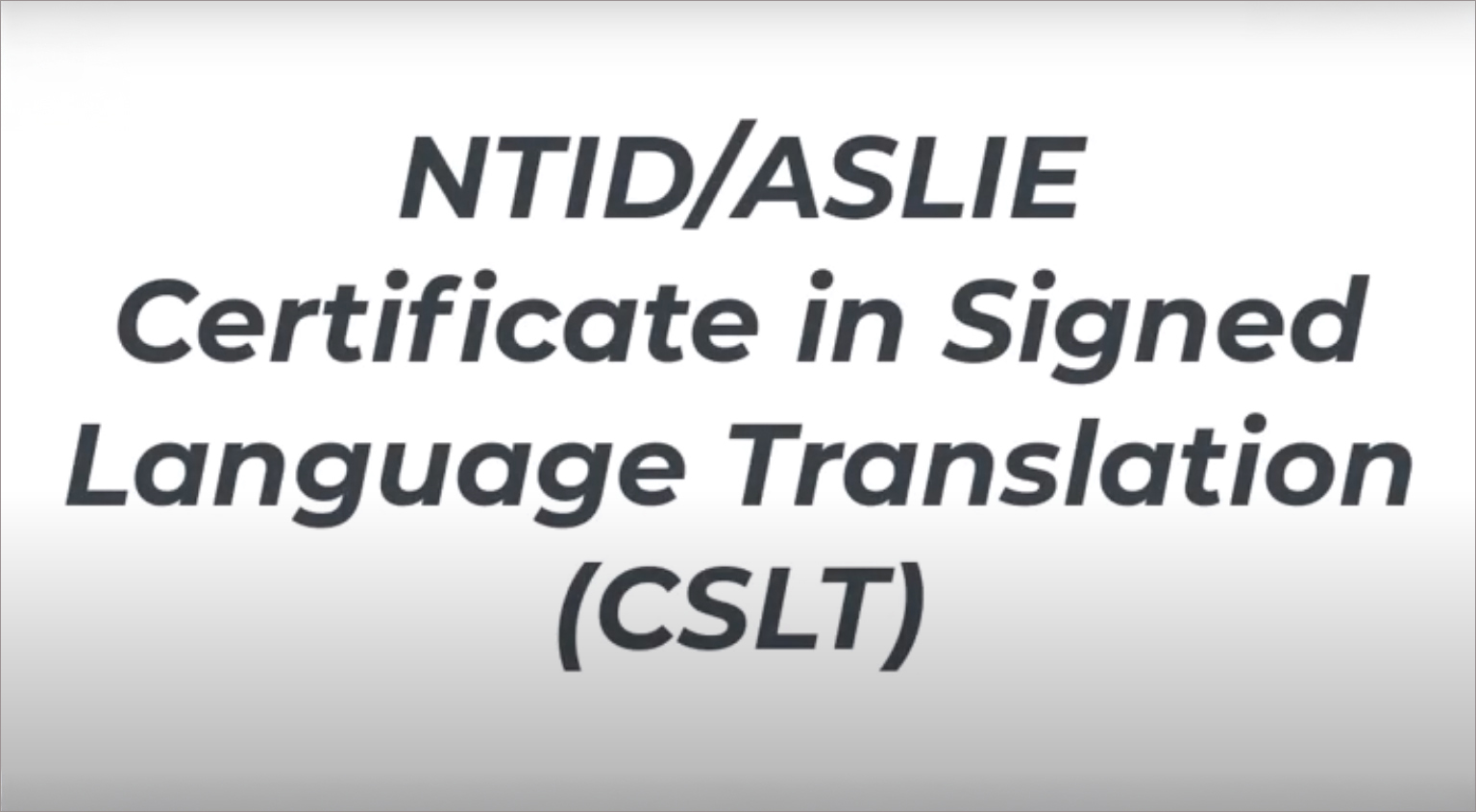Certificate in Signed Language Translation


Department of ASLIE
Certificate in Signed Language Translation
- RIT/
- ASLIE
Overview
The focus of the non-credit Certificate in Signed Language Translation (CSLT) is on translation between ASL and English and (other signed languages). Instruction will be provided by mostly Deaf instructors and designed for students. According to Schaffner (2020), translation is among the fastest-growing professions today, with a growing global marketplace for language services and localization. Translation Studies is a growing discipline in academia. The demand for qualified translators is growing worldwide. To meet the needs of the market, translators need more than bilingual fluency. Translators also should have theoretical knowledge and understanding of translation-based technologies.
In this certificate program, students will acquire a foundation in translation theories and receive opportunities to apply tools, methods, and approaches to translating a variety of text types in accordance with best practices. Participants will engage with issues including translation as an act of social justice, social restoration, linguistic oppression, and audism. The aim of this program is to create translators who possess the knowledge and skills to be effective members of the profession. With its specific focus on Deaf translators, the training fills a gap in the discipline of Translation Studies. The goal of the program is to cultivate Deaf translators, CODA translators, BIPOC translators, and hearing sign language translators who will contribute to the development of translation studies and the advancement of translators.
 |
 |
ASLIE is an Approved RID CMP Sponsor for continuing education activities. The Certificate in Sign Language Translation is a Professional Studies (PS) program offering up to 10.0 CEUs at the Some Content Knowledge Level. (The program also includes some instructional material which counts toward RID CMP’s Power, Privilege, and Oppression requirement.) Should you need an accommodation, please contact Dr. Janis Cole-Patterson at jicnss@rit.edu. This certificate program upholds nondiscriminatory practices and encourages a learning environment which is free from bias and promotes mutual respect.
Goals
The program examines the historical significance of translation and draws on insights and practices from the field of literary translation. It addresses current debates among translators and translation scholars about how best to translate literary texts. This is a rich and complex question because translation is not just a straightforward matter of exchanging words in one language for words in another. The matter of translation also involves cultural, social, aesthetic, political, economic, and ethical considerations. The modules are structured to provide Deaf bilingual (ASL/English) individuals and hearing individuals with an opportunity to learn, improve, and expand their knowledge and skills in signed and written translations that are currently in high demand within the language services industry. The modules offer valuable techniques used by a good translator in the translation between ASL and English. The program offers every facet of the translation process: the complex process of rendering meaning from a source language/culture into a target language/culture.
Students will gain experience working with a full range of texts from legal documents, business reports, and medical records to literary works, academic research, and marketing. They will develop critical analytical skills to question the traditional understanding of the relationships between the original and translated text, between author and translator, and the source and target languages and cultures. The course will teach learners to critically analyze and translate documents with accuracy, equivalency, and integrity, with an understanding and application of different styles of translation. Throughout the program, it will be viewed as socio-cultural and ethical activities as well as linguistic ones.
Outcomes
After completing this program, the participants will be able to:
- Demonstrate an understanding of the historical development of translation, relevant theories, and approaches to translation as well as associated terminology
- Explore the variety of definitions of translation and their implications as well as common misconceptions
- Apply theory to inform and justify decision-making
- Explain the decision-making processes involved in approaches to translation of specific texts and produce translations of different discourse genres, effectively rendering translations that are equivalent, conceptually accurate, and culturally appropriate.
- Develop strategies and choices and recognize translation as a scholarly work.
- Critically analyze, reflect and articulate how language, power, privilege and oppression impact translation decisions including issues of social justice, language attitudes, historical and current linguistic oppression, and audism
- Demonstrate an understanding and application of metalinguistic and extralinguistic knowledge as well as the complexities of the multilingual and multimodal nature of translation practice
- Evaluate the accuracy and effectiveness of translations of specific texts produced by themselves and others and provide appropriate feedback
- Demonstrate an understanding of the practice profession of translation including ethics, business practices, professional development and collegiality and teamwork
- Apply knowledge of technology to assist in producing accurate translations (including but not limited to recording/editing of video, use of glossaries and dictionaries, and hardware and software for captioning/subtitling)
- Define the meaning of a qualified professional translator
- Critically reflect on translation products
Format
The program includes approximately 100 hours of instruction using an online blended format. Students meet twice weekly in Zoom on Monday and Wednesday evenings, from 7:00 PM – 9:00 PM (Eastern).
Class assignments include readings and reflective discussions, use of video materials and hands-on activities. Students should plan on scheduling an average of five to seven hours per week for successful engagement in this program.
The 16-week program runs from September through December.
Curriculum
- Module 1: History of Translation
- Module 2: Theories and Approaches to Translation
- Module 3: Race, Gender, Sexuality, Power, Privilege and Oppression in Translation
- Module 4: Discourse and Text Analysis for Translators
- Module 5: The Translation Profession: Ethics, Associations, and Professional Development
- Module 6: Translation in Specialized Domains
- Module 7: Technological Tools for Translation
- Module 8: Internship: Observation and Translation in Practice
- Module 9: Capstone Project and Portfolio
Admission Criteria
The following criteria will be used to select applicants to participate in this program. Qualified candidates will be interviewed before acceptance is offered.
- Applicants must be proficient in ASL and English.
- Applicants with experience translating English text to ASL will be given preference.
- Applicants must agree to complete the entire program. (No refunds will be given.)
Equipment Needed
The following information explains the technical requirements for successful participation in NTID’s online, non-credit Certificate programs. It details the hardware and software requirements as well as the system requirements and Internet speed needed to engage with online classes successfully.
For an optimal learning experience in our online Certificate programs, students are required to have access to a working device that is less than 5 years old. The recommended devices are listed below:
- Desktop Computers with a built-in webcam or an external camera
- Laptops/MacBooks with a built-in webcam or an external camera
- Minimum of two monitors (strongly recommended for synchronous online courses)
Note: Chromebooks are not recommended for these programs due to potential compatibility issues with software and platforms like Zoom.
For the best experience with navigation, performance, accessibility, and compatibility on myCourses, it is required that all students use the latest version of a supported browser. The following browsers for the best use of myCourses are:
- Google Chrome (preferred) is highly recommended for its speed, performance, and compatibility with myCourses and GoReact.
- Firefox is another reliable option that you can use for myCourses.
- Microsoft Edge also works well with myCourses but it must be upgraded to the latest version.
Note: For Mac users, Safari browser is not recommended to use for MyCourses as it’s known to run into some functionality issues with MyCourses.
Your device must satisfy the minimum system requirements to ensure a successful online learning experience.
- Memory (RAM): Your computer must have at least 4 GB of RAM. However, 8 GB is highly recommended to ensure you can access all of the course materials, software, and resources faster, including video assignments without slowdowns.
- Operating System: The most recent versions of operating systems such as Windows 10 or 11, and Mac OS X (10.15 or above). Please note that Windows 10/11 S Mode is not supported.
- System Update: Your operating system must have the most recently released updates. These updates often resolve issues with web browsers and improve performances for software such as Zoom, MyCourses, and Microsoft Office.
A reliable high-speed internet connection with speeds of 20 Mbps or higher is recommended for online courses. This ensures smooth Zoom meetings, and quick access to all course materials, including video presentations. You can check your internet speed by going to www.speedtest.net or www.fast.com.
Coordinator and Instructor
Janis Cole-Patterson, Ph.D., RSC., CDI
jicnss@rit.edu
 Janis Cole-Patterson, Ph.D., RSC, CDI, Feminist, ASL/English Interpreter/Translator; Educator/Consultant, and social justice community advocate/forum leader/facilitator. Janis has worked as an educator, interpreter and translator for over 40 years. She holds a Ph.D. in Interpreting and Translation from Gallaudet University. Her dissertation examined the lived experiences of Deaf translators. She is actively involved in both interpreting and translating, as both a practitioner and in scholarly research and publication.
Janis Cole-Patterson, Ph.D., RSC, CDI, Feminist, ASL/English Interpreter/Translator; Educator/Consultant, and social justice community advocate/forum leader/facilitator. Janis has worked as an educator, interpreter and translator for over 40 years. She holds a Ph.D. in Interpreting and Translation from Gallaudet University. Her dissertation examined the lived experiences of Deaf translators. She is actively involved in both interpreting and translating, as both a practitioner and in scholarly research and publication.
Contact
Please direct questions to cslt@rit.edu.





